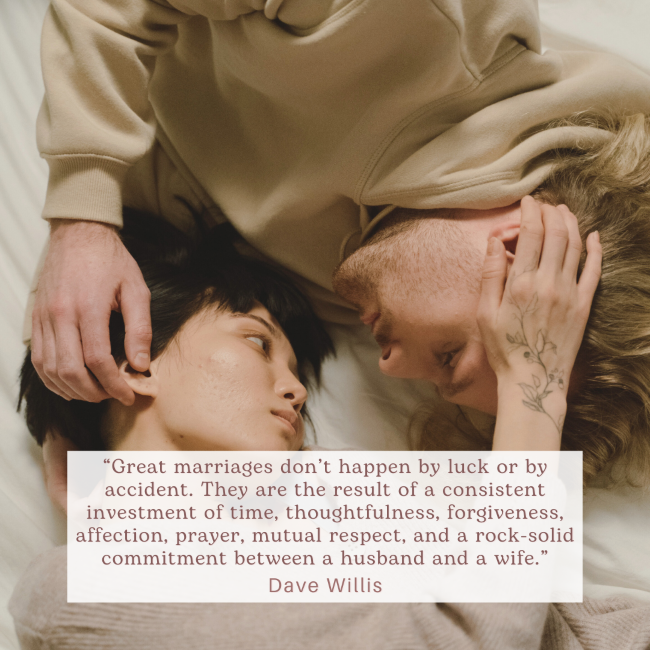Moral Dilemmas and Christian Ethics
Grounded in the teachings of the Bible, the ethics of Christianity are a guide for those striving to live a life that honors God. With the rapidly increasing moral ambiguity of today, Christian ethics help us discern right from wrong, enabling us to align our actions with our faith; and courageously face moral dilemmas with wisdom and integrity.
Moral Principles and Their Foundation
2 Timothy 3:16-17, which states, "All Scripture is God-breathed and is useful for teaching, rebuking, correcting and training in righteousness, so that the servant of God may be thoroughly equipped for every good work." bears witness to the Bible’s sufficiency as mankind’s foremost source of moral authority.
Ethics of Christianity:
1) Love
Supporting Verses:
- 1 Corinthians 13:3-13
- John 13:34
- Romans 13:10
- 1 John 4:7-8
- Matthew 22:37-39
- Colossians 3:14
2)Justice and Equality
Supporting Verses:
- Isaiah 1:17
- Amos 5:24
- Micah 6:8
- Proverbs 31:8-9
- Leviticus 19:15
- Zechariah 7:9-10
3)Truth and Integrity
Supporting Verses:
- Proverbs 12:22
- Psalm 15:1-2
- Colossians 3:9-10
- 1 Peter 3:10
- John 8:32
- Ephesians 4:25
4)Humility and Servanthood
Supporting Verses:
- Mark 10:45
- Philippians 2:3-4
- 1 Peter 5:5-6
- Luke 22:26-27
- Matthew 23:11-12
- 1 Timothy 6:2
Common Moral Dilemmas
Below are common moral dilemmas
-Honesty vs. Avoiding Harm: Conflict arises when the truth may hurt another.
-Loyalty to God vs. Loyalty to Family: Conflict arises from discrepancies between one's faith and family expectations/traditions.
-Loyalty to God vs. Loyalty to Friends: Conflict arises from an imbalance between one's faith and expectations within friendships.
-Personal Rights vs. Submission to Authority: Conflict arises when an authoritative mandate compromises beliefs or freedoms.
-Serving Others vs. Self-care: Conflict arises from an imbalance between serving others and time for rest, rejuvenation, and self-care.
-Environmental Stewardship vs. Economic Progress: Conflict arises from the decision between responsibly caring for the environment and the continuation of economic growth and development.
-Truthfulness vs. Confidentiality: Conflict arises from the decision to disclose information and the breach of confidentiality and privacy of another.
-Forgiveness vs. Justice: Conflict arises from discrepancies between forgiveness and seeking justice.
-Personal Convictions vs. Social Norms and Expectations: Conflict arises from an incompatibility between personal faith and societal or cultural norms and practices.
-Respecting Life vs. Easing Suffering: Conflict arises from the ethical considerations surrounding end-of-life care and the sanctity of life and the alleviation of pain and suffering.
-Generosity vs. Management of Personal Resources: Conflict arises from decisions between generous giving and sensible management of finances and resources.
-Pursuing Justice vs. Ensuring Safety: Conflict arises from an imbalance between the pursuit of justice and the well-being and safety of self and others.
-Promoting Unity vs. Addressing Conflict: Conflict arises from the volition between advocating unity and addressing interpersonal conflict.
-Media Consumption and Moral Influence: Conflict arises when the type of media consumption endangers personal morals.
Approaching Ethical Dilemmas
The prudent see danger and take refuge, but the simple keep going and pay the penalty. Proverbs 22:3
Because ethical dilemmas can test our faith, as Proverbs 22:3 advises, it is imperative to base responses to moral dilemmas with discernment. You can find clarity through the following:
- Prayer
- Scriptural Insight
- Seek Counsel
- Considering Consequences
Hypothetical Examples
-Truthfulness vs. Avoiding Harm: Sarah discovers her friend's spouse is having an affair. She struggles with whether to disclose this truth, knowing it could devastate her friend's marriage and family. After prayer and seeking counsel from her pastor, Sarah decides to gently approach her friend with the truth, emphasizing her concern and readiness to support her friend through this difficult time.
-Justice vs. Forgiveness: Emily, a victim of a serious crime, struggles with whether to press charges against the perpetrator. While justice demands accountability, Emily wrestles with the call to forgive as Christ forgave. After seeking guidance from her church community and deep reflection, Emily chooses to pursue justice through legal channels while also extending forgiveness in her heart, trusting God with the outcome.
-Promoting Unity vs. Addressing Conflict: Peter is the head of a project at work, and interpersonal conflicts arise among team members. He faces the dilemma of promoting unity within the team while addressing underlying conflicts. After prayer and seeking guidance from church mentors, Peter decides to facilitate open dialogue among team members, encouraging forgiveness, reconciliation, and a renewed focus.
-Truthfulness vs. Avoiding Harm: Rachel discovers confidential information about a colleague that could harm their career if disclosed. She struggles with whether to uphold honesty or protect their colleague's reputation. After seeking wisdom through prayer and consulting with a trusted mentor, Rachel decides to confront her colleague discreetly, offering support and guidance while maintaining confidentiality.
-Respecting Life vs. Easing Suffering: Laura's elderly parent is terminally ill and expresses a desire for physician-assisted suicide to end their suffering. Laura must reconcile honoring the sanctity of life with respecting her parent's wishes for relief from pain. After seeking guidance from medical professionals and spiritual advisors, Laura decides to provide compassionate care and explore palliative care options that prioritize pain management and emotional support, affirming her parent's dignity while upholding the sanctity of life.
-Pursuing Justice vs. Ensuring Safety: Jessica witnesses an act of injustice in her neighborhood but fears retaliation if she reports it to authorities. She wrestles with whether to prioritize seeking justice or ensuring her safety and the safety of her family. After seeking advice from community leaders and praying for wisdom and protection, Jessica decides to report the injustice anonymously, trusting God to intervene and protect her and her loved ones while standing up for righteousness.
-Environmental Stewardship vs. Economic Growth: Olivia works in a company that is planning a project with potential environmental impacts on local wildlife habitats. She faces the dilemma of advocating for environmental stewardship while recognizing the economic benefits the project could bring to the community. After seeking wisdom through prayer and consulting with environmental experts and community stakeholders, Olivia decides to propose modifications to the project that minimize environmental harm, ensuring responsible stewardship of God's creation while supporting sustainable economic development.
-Media Consumption and Moral Influence: Emily enjoys watching a popular television show known for promoting values contrary to her Christian beliefs. She faces the dilemma of whether to continue watching for entertainment or abstain to protect her spiritual well-being. After prayerfully considering scriptures on purity and discernment and seeking advice from her spiritual mentor, Emily decides to limit her exposure to media that conflicts with her values, choosing instead to focus on content that aligns with God's truth and strengthens her faith.
To End
When ethical standards are at an incongruence with conventional wisdom or personal preference, it can be a challenge to determine the best and most moral way to proceed. Trusting God and His Word enables us to approach moral challenges with clarity and integrity.
-Torrance Community Church of Christ










